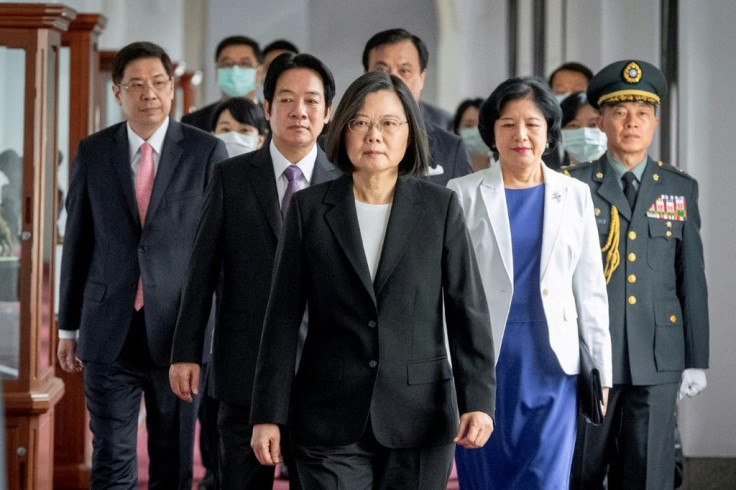As PLA Airforce Incursions Continue, Taiwan Lawmaker Doubts US' Ability to Stop Chinese Invasion
Any discussion of cross-strait relations between Taiwan and China begins with the assumption that Beijing considers Taiwan a wayward province that must be reunified with the mainland, by force if necessary. And if that happens, can the United States prevent it or reverse it after it has happened?
Su Chi, the former secretary-general of Taiwan’s National Security Council, has his doubts and says he is concerned about the current situation.
The “current situation” stems from the 1979 Taiwan Relations Act (TRA), which was designed to maintain substantive ties with Taipei after Washington switched formal diplomatic recognition to Beijing. The act provided a U.S. security guarantee for the island where Taiwan could look to Washington if certain conditions existed such as:
- An anti-communist China sentiment that has been growing since current President Tsai Ing-wen, of the independence-leaning Democratic Progressive Party, became president in 2016 and refused to accept the one-China principle. She won a second term in January this year.
- A shared wartime history with the ROC (Republic of China) that dates to the early 1950s and the Korean War shortly after Chiang Kai-shek's troops retreated to Taiwan at the end of the Chinese civil war on 1949.
- Beijing's human rights violations and its curtailment of religious freedoms as is happening with the Chinese treatment of the Uyghur Muslims in the western part of the country as well as its efforts to control Hong Kong, first with an extradition bill on 2019 that let to unrest and the recently passed National Security Law.
Su Chi is now president of Taipei Forum, a private think tank, and a member of the opposition Kuomintang or Chinese Nationalist Party (CNP) party. It has a socialist ideology more in line with the mainland than with the current president of Taiwan.
He said: “Given the military imbalance between Taiwan and the mainland, the absence of cross-strait dialogue and no [efficient communication] mechanism in place between the U.S. and the mainland, I am worried about the situation because anything could happen.”
He commented on the Taiwan Defense Act that was recently proposed by U.S. Senator Josh Hawley, a Republican from Missouri, saying it might give the island authorities false hope about the likelihood of the U.S. coming to their rescue.
The Hawley Act would work in conjunction with the TRA from 1979 and require the U.S. government to review and include Taiwan under the US “nuclear protection umbrella.”
It also calls for the Department of Defense to maintain the ability to defeat a PLA invasion and to guard against a Chinese “fait accompli”. The phrase means, “a thing accomplished and presumably irreversible” according to Merriam-Webster dictionary.
Su has warned the Tsai administration to pay close attention to the wording. He said the phrase referred to a situation where the U.S. was no longer able to come to Taiwan’s rescue.
Any takeover, he said, by the PLA before the U.S. could respond, would make any military response too difficult or costly for Washington.
Both PLA warplanes and U.S jet fighters have engaged in a flurry of activity over Taiwan in recent weeks. Taiwan’s defense ministry has stressed it has full control of movements in the air and sea surrounding Taiwan and asked the public to stay calm.
Su may have been reminiscing about the days when his party ran the government when he said, “The situation today is a lot grimmer than the time when Chen Shui-bian and Ma Ying-jeou were presidents.” That was between 2000 and 2016 before Tsai took office.

© Copyright IBTimes 2024. All rights reserved.





















